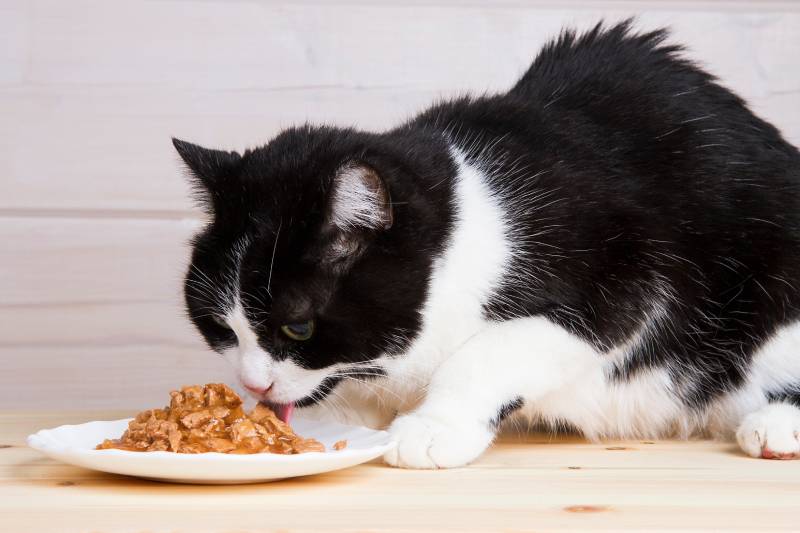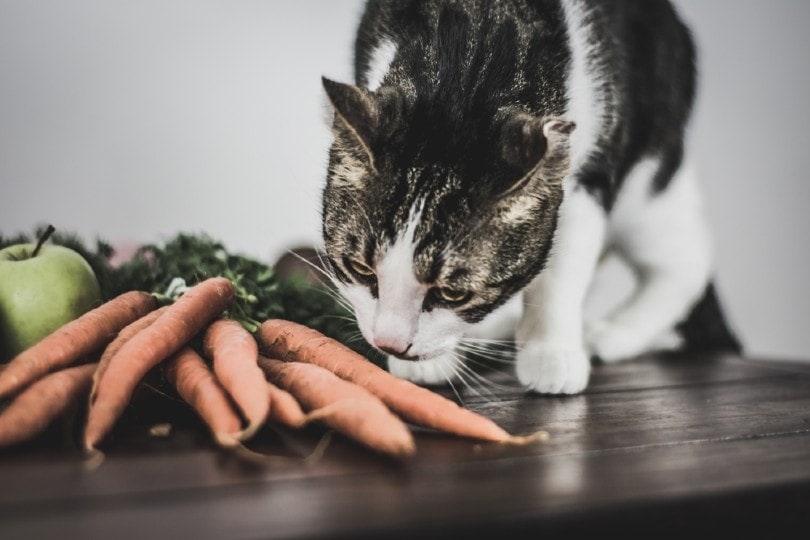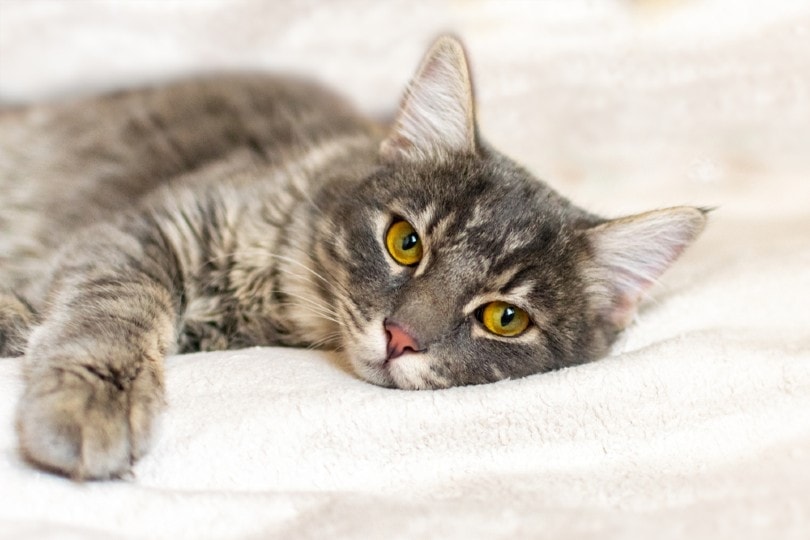Can Cats Eat Ferret Food? Vet Approved Facts & FAQ
By Lorre Luther
Updated on

Click to Skip Ahead
Although cats tend to be larger than ferrets, the two species share several traits and characteristics. Cats, like ferrets, are skilled predators; even the most laid-back felines generally retain solid hunting instincts, and there’s overlap in the dietary requirements of ferrets and cats.
While cats and ferrets have common dietary needs, there are some differences in what they need to stay in top shape. Species-specific choices are designed to provide each with the nutrients and calories they require in appropriate proportions, and cats are healthier eating cat food! In short, cats can safely eat small amounts of ferret food, but their primary diet should be cat food.
Why Isn’t Ferret Food Appropriate for Cats?
Both cats and ferrets are obligate carnivores and so have similarities in their nutritional requirements. Ferrets have a short digestive tract, with their small intestine being only about 5 times body length which is even shorter than the cat’s at 8-10 times body length.1 They require a diet high in protein and fat, and low in fiber and carbohydrates. Studies have shown that ferrets do not digest fiber and simple carbohydrates well and do not need any dietary carbohydrates.
High-quality commercial ferret food should have around 30-35% protein and 15-20% fat, by dry matter.2 Although cats also need a high-protein diet, adult cats do not require as much fat in their diet. In general, kitten food is most similar in macronutrient profile to ferret food as kittens require more protein and fat than adults.
So, while most cats can eat ferret food on occasion, it may cause digestive upset in the short term and should not be fed regularly or as a substitute for a high-quality cat food. Also, ferret food isn’t as easy to find as cat food in grocery stores; high-quality cat food is available in grocery stores, pet stores, and online and a lot of research has gone into formulating it.

The Importance of Your Cat’s Diet
Ensuring that cats get the necessary nutrients is critical to their health and well-being. Cats that consume nutrient-poor or unbalanced diets can suffer from a variety of physical conditions including gastrointestinal issues, dry dull coats, and poor growth and development. A lack of the essential amino acid taurine can lead to eye and heart conditions.
Obesity is also a common issue for cats which can shorten their life expectancy and increase their risk of developing certain diseases including diabetes. High dietary fat can be a contributing factor.
Ensuring that cats get enough water is another essential part of health maintenance. A lack of fluid intake can be a predisposing cause of urinary tract disease.
Hydration
There are two ways to increase the amount of water in cats’ diets: fountains and wet food. Some cats strongly prefer drinking running water; moving water is often cleaner in the wild, and cats may be naturally drawn to the flowing water in fountains.
Feeding cats more wet food is another way to boost hydration. Most wet food has a relatively high moisture content (over 70%), and cats enjoy its taste, smell, and texture.

The Ideal Diet
Shopping for commercial products that feature the American Association of Feed Control Officials (AAFCO) statements of nutritional adequacy makes it easy to find brands that have all the nutrients cats’ bodies need to stay healthy and fit.
Remember that cats’ nutritional requirements change as they age. Kittens have higher protein and fat demands than adults, and seniors often require cat food with less fat. Your vet can provide recommendations for high-quality cat food and help you develop a healthy diet for your cat.
FAQ
Can Cats Eat Dog Food?
No. If your cat gets a bite or two of your dog’s kibble, there’s not much to be concerned about, but cats can’t eat dog food frequently. Cats require higher levels of protein than dogs, and some essential nutrients, such as taurine, that are important for feline health aren’t always included in adequate amounts in dog food. Insufficient taurine can lead to heart and eye problems in cats.
Can Cats Eat Fruit and Vegetable Treats?

Although cats can eat fruits and vegetables occasionally, they prefer commercial treats with animal protein. Most cats aren’t attracted to veggies or fruits. However, broccoli, asparagus, cooked sweet potatoes, pumpkin, and bananas are safe to serve cats in small portions.
Conclusion
While cats and ferrets have similar nutritional needs, each has specific dietary requirements that are usually met by feeding species-appropriate commercial formulations. Although ferret food isn’t hazardous to cats as an occasional snack, cat food and high-protein treats are healthier and recommended by veterinarians. Your vet can help you select a healthy cat food for your pet.
Featured Image Credit: Lightspruch, Shutterstock












